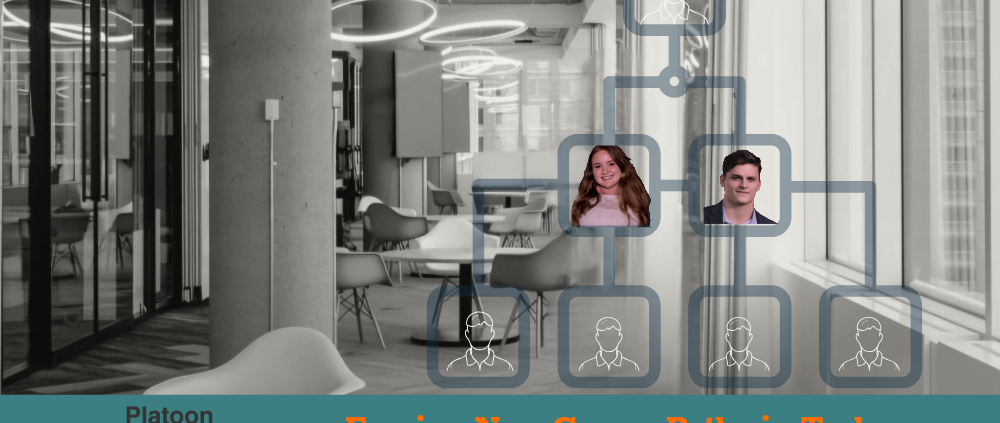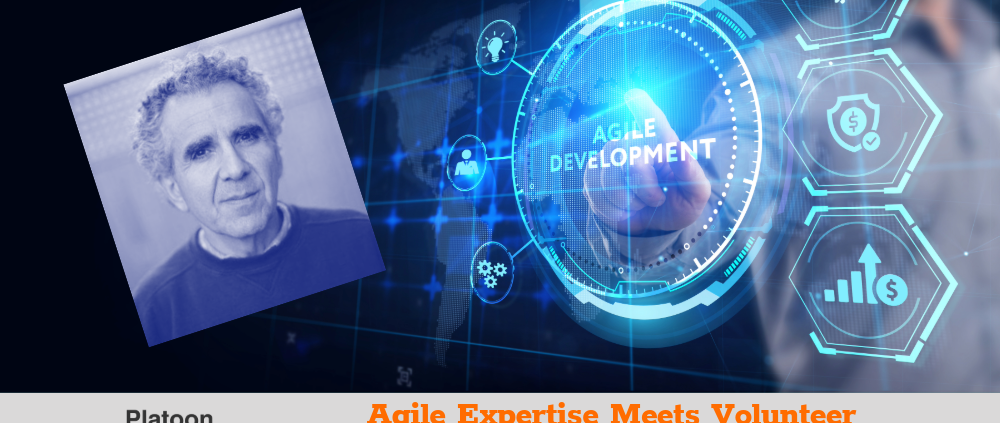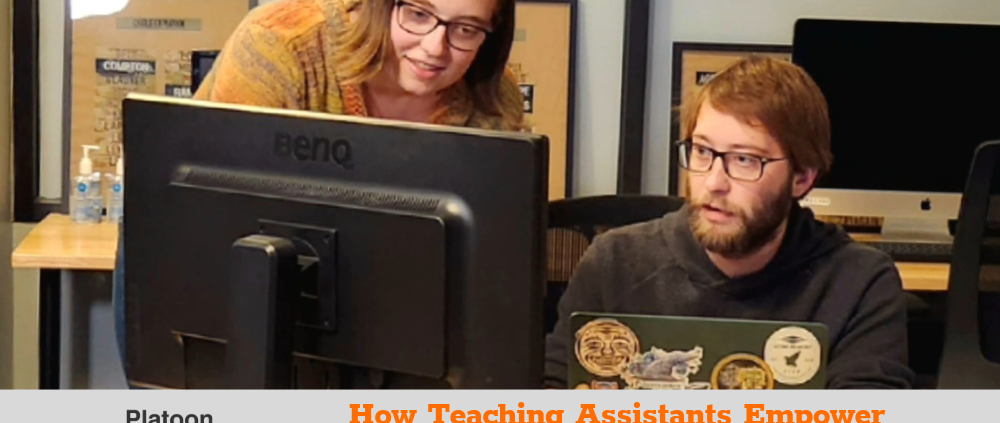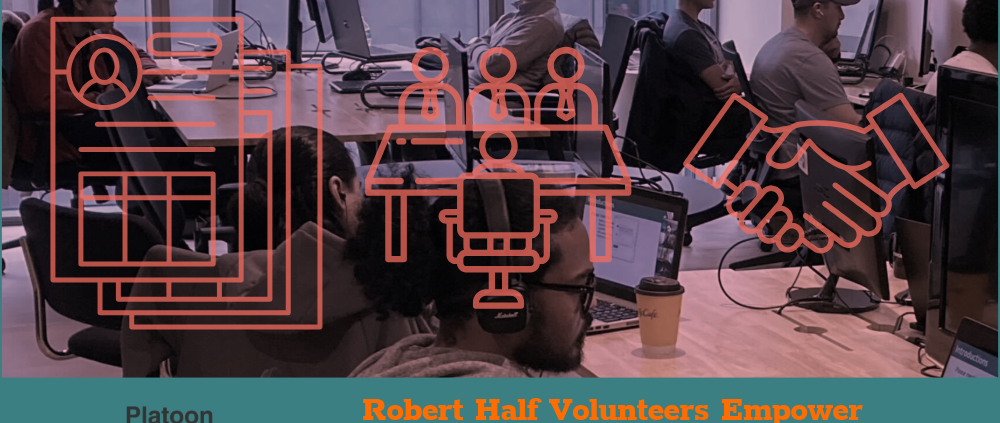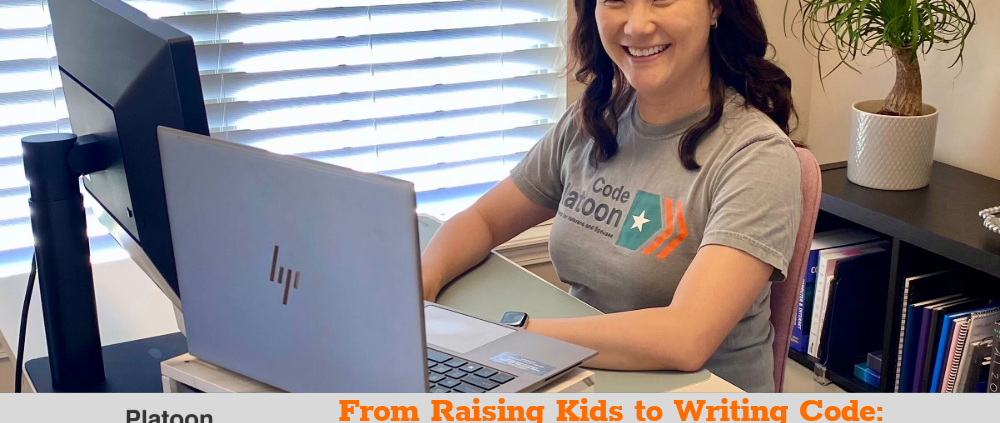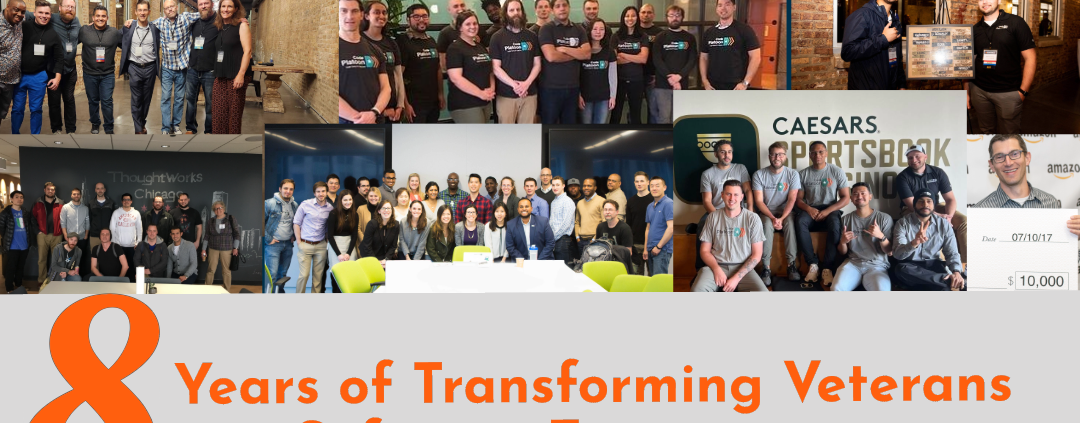From Bootcamp to Boardroom: How Veterans Are Fast-Tracking Their Tech Careers
Veterans often face career uncertainty, questioning their ability to transition from military to civilian roles. Concerns like “What if I can’t find a job?” or “Can I learn something new?” loom large.
Code Platoon alumni Michael Orland and Megan Genualdi faced these same concerns before they both became software engineers at DRW after graduating from coding bootcamp.
Michael, an Army Reserve Combat Medic, later earned a nursing license. He graduated from Code Platoon in May 2021 and started at DRW with a six-month apprenticeship. This then turned into a full-time position. Michael now contributes to a project revamping all the networking data and how the networking team consumes that data.
“Since starting, I’ve deployed or created nearly eight applications, either solo or with a small team,” he shares.
Megan, a Navy Electronics Technician for six years, completed Code Platoon in May 2022 through the DoD SkillBridge program. She joined DRW as a software engineering apprentice, quickly contributing to key projects.
“I continue to work on a project from my internship, which is a testament to my passion for it,” says Megan. “We call it traffic control, an app that tracks the status of shipments. I still enjoy it because it’s a lot of fun to design and make all the different elements work together.”
DRW, a Chicago-based international trading firm, is one of Code Platoon’s longest-standing corporate partners. Their innovative approach to trading centers around technology, modeling, and quantitative analysis. Code Platoon works with employers like DRW to secure graduates with tech jobs within six months of completing the program.
“My manager consistently makes space for Code Platoon graduates,” says Michael. “Our team has welcomed several, including Megan. We have nineteen people total from Code Platoon. It says a lot that they are working alongside graduates from Stanford, Yale, and other top universities.”
“The Code Platoon graduates who start here tend to be a bit bolder and more mature, with more lived experience from the military or as a spouse compared to the new CS graduates. From managing my team, I would say Code Platoon’s bootcamp graduates are just as prepared to jump in as our other apprentices who complete internal training for nine months.”
The shift from military service to software engineering was initially challenging for both Megan and Michael, but Code Platoon equipped them well for their new tech careers.
“Code Platoon directly prepared me, from prototyping to full-stack development—exactly what I do now,” says Michael.
Starting with no coding knowledge, Michael found the bootcamp’s learning curve invaluable. Once he started working in software, he was very comfortable being thrown into situations where he had to figure out how to build new things.
“I felt imposter syndrome at Code Platoon, but my job was actually easy to pick up afterwards. Bootcamp was very similar to what I would be doing at DRW,” says Megan. “Code Platoon also gave me a good sense of communication skills and how to explain what I am doing to non-tech people, which is an essential part of my job when I converse with stakeholders.”
Both Megan and Michael continue to advance rapidly in their careers. Michael was accepted into a Master’s program in Quantitative Management: Business Analytics. At DRW, he is currently a mid-level engineer who builds applications from the ground up.
“I’ve started leading projects over the last year and a half, so I get to be in charge of all 360 degrees of the development process. Stakeholders ask me to build something, then we put together a plan, present it to them, and then it evolves as we develop it,” says Michael.
Megan is earning a computer science degree and has started to lead development projects as well.
“I’m happy I did the bootcamp before getting my degree,” she says. “I feel like Code Platoon better prepared me for the job market than a degree. I’m learning a lot in the CS classes too, but I’m reading and hearing lectures about concepts instead of doing them.”
Both Michael and Megan started exactly where a lot of Veterans are right now: just coming out of the military, feeling overwhelmed, and maybe not knowing what direction to go in. Code Platoon underscores a crucial message for Veterans and military spouses: It’s never too late to pivot, and nothing is impossible.
As Michael says, ‘It blows my mind that just four months of coding bootcamp led to a career like this.”

